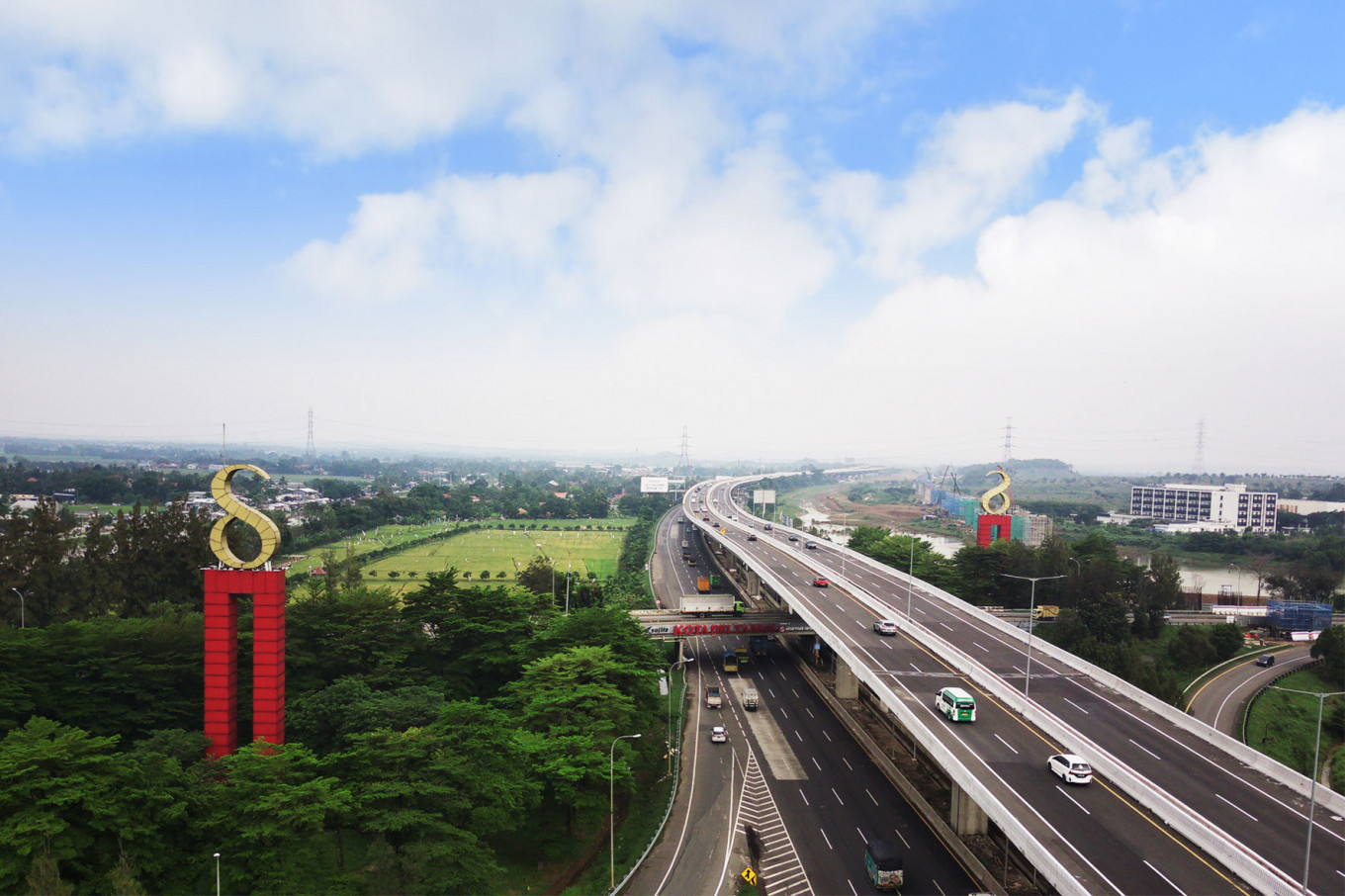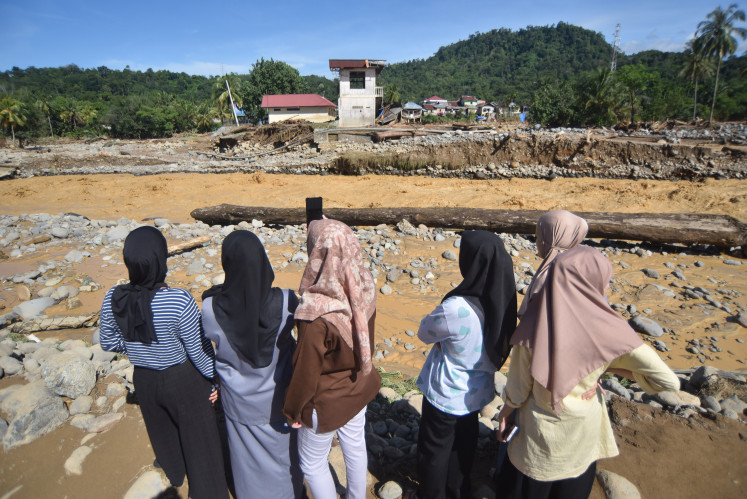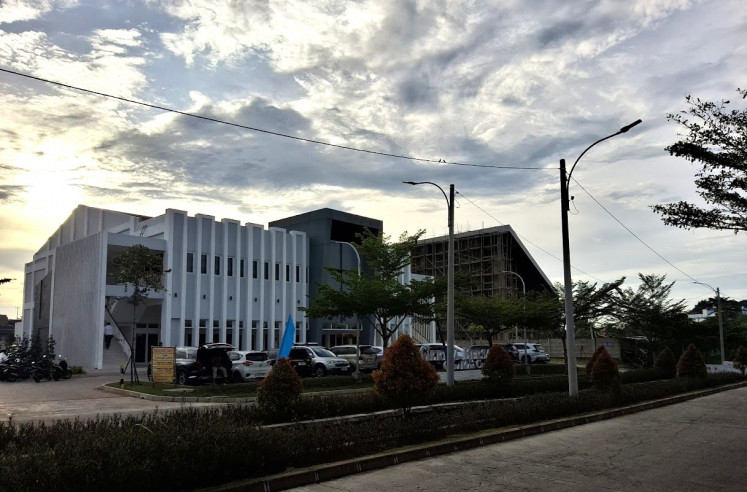Popular Reads
Top Results
Can't find what you're looking for?
View all search resultsPopular Reads
Top Results
Can't find what you're looking for?
View all search resultsRethinking dispute resolution in infrastructure projects
More time and resources will be lost to litigation and arbitration to determine unresolved issues which have escalated into disputes.
Change text size
Gift Premium Articles
to Anyone
I
n the high-stakes world of infrastructure development, disputes are often complicated, protracted, and expensive. It is not unusual to take years to resolve disputes, and usually after expensive and time-consuming legal processes in national courts or arbitral tribunals.
There may be no “winner” at the end of the dispute resolution process, only a question of whether one party loses more or less.
In the case of public infrastructure development, a dispute may impact contractual parties but also the country’s economy and the infrastructure’s end users. It is common for disputes to cause delays or disruptions to infrastructure development, especially when there is disagreement on key issues.
Such delays and disruptions deter the benefit of public infrastructure, resulting in any additional costs arising to be passed on to the infrastructure’s end users. It is therefore sensible and necessary that an efficient dispute management and dispute resolution process be put in place for commercial parties to manage and resolve any project-related issues that could arise.
We believe that effective dispute management and avoidance will improve the infrastructure ecosystem by reducing disputes and lowering costs for stakeholders. It will also reduce the risk for financiers and enhance investor confidence in new projects. We hope this will further accelerate Asia’s infrastructure development and contribute to the successful delivery of public goods in the region.
The last few years have demonstrated that delays or disruptions to infrastructure projects can come from anywhere. Nobody would have expected in early 2020 that COVID-19 would turn into a global pandemic, and its significant impact on infrastructure projects worldwide. Likewise, nobody in 2022 would have predicted the massive disruptions to the global supply chain brought about by Russia and Ukraine’s protracted conflict.
Global shocks such as the COVID-19 pandemic have made infrastructure disputes more commonplace.
These shocks to the global system illustrate the uncertainty that underlies all infrastructure projects. From our experience, we have seen the progress of infrastructure projects set back by more than a year by the last few years’ events. Planned project procurements were delayed by months as contractors scrambled to secure materials and equipment from alternative sources. These delays and disruptions translate into significantly higher costs and time delays for infrastructure development.
Not all projects have contractual provisions that cater for these disruptions. Those that did are unlikely to have contemplated the extent of an event’s delay, disruption, or additional costs. It is thus common for owners, contractors, subcontractors, and suppliers to argue over who should bear these additional costs and for projects to stall amid such arguments.
Traditional dispute resolution mechanisms are mostly reactive in nature. Such dispute resolution mechanisms are not targeted at resolving issues before they turn into a dispute during a project.
Many infrastructure contracts’ dispute resolution mechanisms even have express provisions which prevent contractors from commencing any dispute resolution process until after the project’s completion. Such dispute resolution mechanisms may work if the contractor is content to wait and continue their work, but many will not be prepared to do so, as seen in the last few years’ events.
Without the right processes, dispute resolution can be a protracted affair, leading to project delays. Time will be lost, and progress stalled if issues are not resolved proactively. More time and resources will be lost to litigation and arbitration to determine unresolved issues which have escalated into disputes. These challenges are counterproductive to infrastructure development, and it is imperative for the parties involved to resolve them quickly and cost-effectively.
Against this backdrop, we advocate for infrastructure projects to adopt a more proactive and collaborative approach that incorporates dispute management processes into project documentation before a project’s commencement. This enables disagreements to be addressed, managed, or resolved during the project before they escalate into a dispute.
Dispute management processes are usually designed to address three main priorities that concern infrastructure project stakeholders: To minimize disruptions to projects, to preserve relationships and the goodwill of all parties and to produce time and cost savings.
There is increasing recognition from infrastructure stakeholders on the toll that disputes can have on projects, such as strained project management bandwidth, financial uncertainty, long-term damage to stakeholder relationships, and prejudice to the end user.
Such dispute management processes should be agreed upon at the outset between commercial parties. This ensures that parties can readily activate an agreed-upon process should any project issue arise. While it is theoretically possible for commercial parties to agree to a dispute management process in the course of the project even if such a process was not provided for in the contract, this is difficult to achieve.
The key to a successful dispute management process is thus to ensure they are immediately available when needed in the course of a project. This is distinct and in addition to the formal dispute resolution mechanisms available to commercial parties if disputes remain unresolved despite undergoing the dispute management process.
The Singapore Infrastructure Dispute Management Protocol (SIDP) is an example of a formal dispute management process. The SIDP sets out the procedure for the appointment and involvement of a Dispute Board to assist in managing differences that may arise in the context of infrastructure projects. Commercial parties can apply to the Dispute Board to mediate and render an opinion on a matter The members of the Dispute Board can be agreed between the parties.
Infrastructure development is an expensive undertaking that requires a close partnership between the public and private sectors. One common issue that impedes funding for the private sector is the cost of putting together the financing documentation and contractual negotiations.
We consider it possible to standardize many key terms, and standardization has many obvious benefits. For instance, the Standardized Core Project Finance Loan Documents was developed to harness standardization's time and cost benefits while addressing Asia’s project diversity. Co-prepared by Infrastructure Asia and law firms, the set of documents contains key components such as:
- Mandate letters: A document where sponsors can appoint banks, underwrite and draft to better reflect project financing agreements. It allows parties the right to terminate, using standards from the Asia Pacific Loan Market Association.
- Term sheets: A long form to provide parties with detailed arrangements and agreements, along with sponsor support for projects to move on to the next stage.
- Common term agreements: A document with information on cash flow ratio, representation, and common conditions illustrated.
The standardization of financing documents can lower the potential for dispute and the costs of a financing transaction to spur private sector involvement. The availability of dispute management processes to manage issues arising during a project can also help avoid, manage or resolve disputes and reduce the costs and risks of infrastructure projects.
***
Lavan Thiru, executive director, Infrastructure Asia and Christopher Chong, director, Dispute Resolution; head, Construction & Engineering, Drew & Napier.











